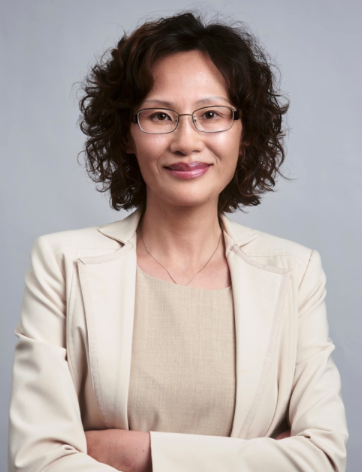Sub-synchronous Interaction and Harmonic Control Instability associated with HVDC and Wind Plant Installations
Jenny Z. Zhou, Ph.D., P.Eng., Senior Supervising Engineer, Teshmont Consultants LP
Sub-synchronous interactions (SSI) are a family of physical interactions that involve exchange of energy between a generator and a transmission system at ac frequencies below the system nominal frequency. They include sub-synchronous resonance (SSR), sub-synchronous torsional interaction (SSTI), and sub-synchronous control instability (SSCI). SSR is a phenomenon that can cause increased fatigue or critical failure of generator turbine shaft systems due to an energy exchange between the generator and a series-compensated transmission system, either through sustained or poorly damped oscillations, or transient effects. SSTI occur when an interaction happens between an HVDC link, FACTS device, or other power electronic controller and the mechanical mass system of a generator. The power electronic controller can exhibit negative damping at sub-synchronous frequencies, which can cause un-damped or growing oscillations in the known mechanical torsional modes of oscillation in the generator shaft system. SSCI phenomenon is a control interaction that can occur between any power electronic devices, such as wind turbine, and a series-compensated system. The oscillations resulting from SSCI may grow very quickly. Another SSCI phenomenon is the interaction between power electronic controllers such as grid-connected inverters for renewable energy sources integration. Such resonances can be both sub-synchronous and super-synchronous and may lead to inverter control instability and other dynamic problems when the connected grid is becoming weak.
The objective of this Seminar is to provide an introduction to SSI phenomena including SSR, SSTI and SSCI. To give a guide on how to identify potentiality where SSTI and/or SSCI may be an issue; how to study the phenomena; how to control, mitigate, and/or protect against any adverse effects associated with these interactions; and potential types of system changes or additions that would require equipment owners and/or operators to re-examine their system for the possibility of SSTI and/or SSCI.
Advance registration only. Registration at the door is not available for this presentation.
Participants must sign-in at the Security Desk in the T2 Building prior to the seminar, and must sign-out upon leaving.
Please indicate any food allergies or dietary restrictions under "Special Requests" when registering.
Registration consists of two parts - vTools and PayPal. Follow the "Register Now" link below, and complete the information. The system will then take you to a PayPal page to enter your payment information. When you have successfully registered and paid, you will receive 2 confirmation emails, 1 from IEEE and 1 from PayPal. Your registration is not complete until your payment has been received, and you have received both confirmation emails.
Date and Time
Location
Hosts
Registration
-
 Add Event to Calendar
Add Event to Calendar
- 110 - 12th Avenue SW
- Calgary, Alberta
- Canada
- Building: TransAlta "T1" building
- Room Number: T1-Auditorium
- Contact Event Host
- Co-sponsored by TransAlta
- Starts 15 February 2019 07:00 AM UTC
- Ends 01 April 2019 05:59 AM UTC
- Admission fee ?
Speakers
 Jenny Z. Zhou, Ph.D., P.Eng. of Teshmont Consultants LP
Jenny Z. Zhou, Ph.D., P.Eng. of Teshmont Consultants LP
Biography:
Jenny Z. Zhou, Ph.D., P.Eng., received a B.Sc. from Southeast University in 1988, M.Sc. and Ph.D. from University of Manitoba in 2003 and 2013 respectively. She was a recipient of Dennis A. Woodford Prize on Power System Modelling and Simulation in 2013 at the University of Manitoba. Currently she is a senior supervising engineer with Teshmont Consulting LP, specializing on HVDC and Power Electronics modelling and analysis. Prior to that she was a senior simulation engineer in Manitoba HVDC Research Centre. During 1988 and 2000, she worked as an system planning engineer and EMS engineer in power utilities in China. Dr. Zhou has thirty years of experience with power system studies with expertise on electromagnetic transient (EMT) studies for power system transients. Dr. Zhou is a registered professional engineer in the provinces of Manitoba, Alberta, Newfoundland and Labrador, a senior member of IEEE and an adjunct professor of the University of Manitoba.
Address:Winnipeg, Manitoba, Canada
Agenda
- 5:45pm: Doors open
- 5:45-6:20pm: Networking and a Light Meal
- 6:20-6:30pm: Introduction
- 6:30-8:30pm: Presentation

